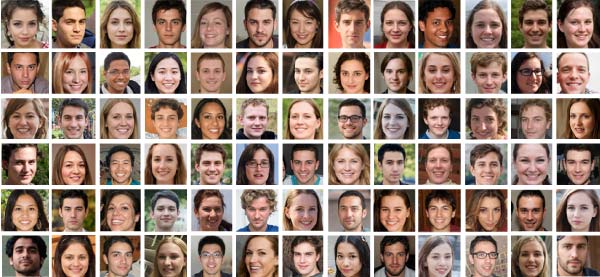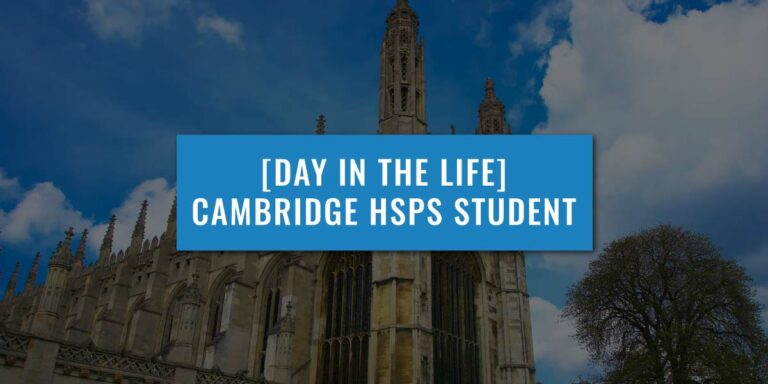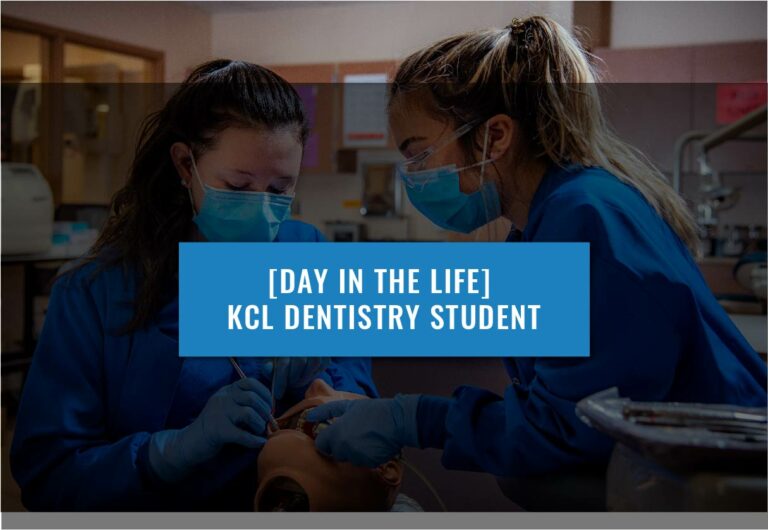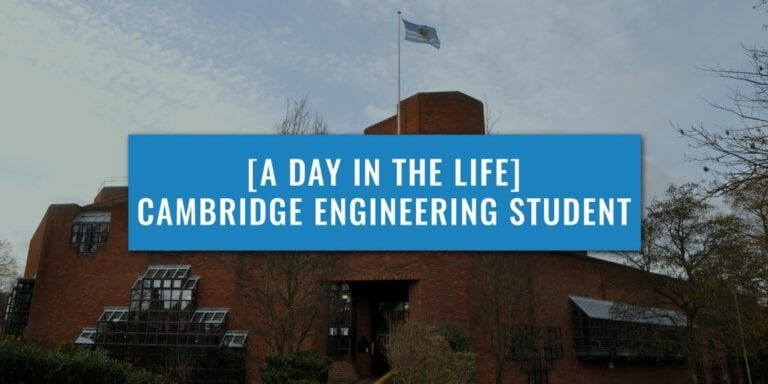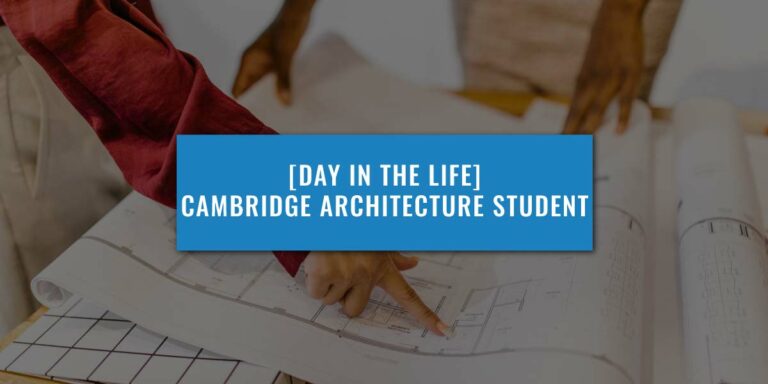Are you curious to know what it is like to study Chemistry at Oxford?
Reading about a course only tells you so much, you do not get the reality that those who are studying it can provide.
Third-year student Joseph Young talks us through what life as a Chemistry student at Oxford is really like.
Get To Know Me
I’m Joe, and I’m in my third year of four studying Chemistry at Oxford.
I’m at St. Hugh’s, one of 30 undergraduate ‘colleges’ (your college is where you live, and it also has a dining hall and library, and organises some of your teaching).
I’m going to tell you all about what a day in my life looks like, and I’ll try to answer some of those questions about life at Oxford that everyone (including me!) had before coming here.
My college is about a 15-minute walk from the centre of town, which houses the big central libraries like the Rad Cam and the Bod, and all the supermarkets and lecture theatres and clubs.
It’s a big college, with lots of greenery, and even features two cats who roam (or more frequently lounge about) the grounds. There’s a small library on-site, a dining hall and even a café.
Need help securing your place at Oxford to study Chemistry?
We help you craft the perfect Personal Statement and teach you how to Interview effectively.
Discover our Oxford Chemistry Premium Programme by clicking the button below to enrol and triple your chances of success.
A Monday as a Chemistry First-year
Morning
The alarm on Monday sounds at 7:30 AM – stay with me, there are good parts to studying at Oxford. A quick breakfast, a quick look at the slides for this morning’s lectures, a shower (at a push), and I’m off out the door to walk to my first lecture at 9 AM.
Today’s lecture is on Thermodynamics – all about trying to find equations to describe and predict things like phase changes (like melting), and what happens to the entropy as you heat or expand a gas (there’s more of it), and where a reaction’s equilibrium will sit.
At 10 AM it’s a short walk to another lecture theatre for a lecture on carbonyl chemistry – ketones and aldehydes do a lot more than just getting reduced and oxidised, as it turns out. There are about 100 people in a lecture (at least at the start of the year), and it consists mainly of a lecturer talking over slides, occasionally writing on a blackboard at the front – there is also a chance at the end to go up and ask questions of the lecturer.
In first and second year we have a 9 AM and a 10 AM every weekday – a bit gruelling, but a good way to get you out of the house in the morning.
At 11 AM I head back to college for lunch – I could head into town and pick up a Pret or a Tesco meal deal, but since all accommodation at my college has a kitchen, it’s cheaper to whip up a quick sandwich at home.
Afternoon
I’m back to work at about 1 PM, working on a problem sheet (five or so long questions which I’ll hand to my tutor before my tutorial next week). I tend to work in my room (with the door open, to stave off the loneliness), but it is more common to work in a library – my college has a great library, a two-minute walk from my room, which has all the textbooks I could ever need for my course (and then some), and lots of different rooms each with a different vibe.
There’s the lobby which you can talk in, for when you don’t actually want to get anything done, the cubicle room where your eyes will never quite recover from the fluorescent lighting, but you are penned into a cubicle so you have no choice but to get work done, and there’s the main area, which is beautifully wooden and old-styled, with 4 people to a table.
I work on my problem sheet for an hour or so, then wander into the kitchen to get a cup of tea and have a chat with the one or two people I’ll inevitably find in there.
Another hour working on the problem sheet takes me to about 3:30 PM – time to start getting ready for my 4 PM tutorial.
A tutorial is a small class of between two and four Chemists in my college, where we will spend an hour or so with our tutor (a university academic) going over a problem sheet we handed in a few days ago.
It’s a chance to ask how to do the bits we couldn’t do, ask questions about the bits we could do but didn’t really understand, ask more general and advanced questions about bits we did understand, and get some all-important exam tips from our tutor.
Evening
I stumble out of the tutorial at 5:30 PM, tired and head spinning – in a more-or-less good way. I bide the 45 minutes left before dinner watching something or other on Netflix, then assemble with some friends for Hall dinner.
The college has a dining hall on-site which serves dinner from 6:15 PM – it’s slightly subsidised so is pretty cheap, and the food is usually pretty good. Pizza and curly fries night is always an absolute result.
A common misconception about studying at Oxford is that you’ll have no free time, you won’t go out at all and your whole time will be spent working.
I am walking/dancing proof that this isn’t the case, as I head off out to Park End, one of Oxford’s (three) nightclubs.
Granted, sometimes you’ll have no choice but to spend the evening in with a problem sheet, and sometimes you’ll even have to stay up quite late, but you absolutely do have free time. Some weeks are busier than others, especially if a few deadlines fall together, and you might be snowed in with work, but the next week will then inevitably be a bit quieter to make up for that.
In true Oxford fashion though, I spend another few hours working on that problem sheet until 9 PM, when we rendezvous in the kitchen for ‘pre’s’ – pre-drinking, the drinks of course being juice, and nothing stronger.
We leave for the club at about 10:30 PM, and returning back to college at about 2 AM I pick up some cheesy chips from a food van – arguably one of the most compelling reasons for going out clubbing.
After my lectures and other than my tutorial, most days were largely composed of self-study – doing a problem sheet, and looking through lecture notes and textbooks to help me do this.
This is one of my biggest tips for the first year of uni – use as many different sources of information as you can. The step-up in the difficulty of content is likely to be significant, and there will likely be a lot that you don’t understand at first.
Turning to as many different books as possible means that hopefully at least one will explain the topic in a way that clicks for you.
I managed to make it out in the evening by cramming quite a lot of work into the day around my scheduled contact hours – being able to be disciplined and manage your time well means there’s plenty of time for things outside of work.
Before coming to Oxford, I was particularly worried about whether I’d physically be able to sit down and do all the work required – Chemistry has a notoriously high workload. But it turns out that university-level Chemistry is a lot more interesting than A-Level, so it’s a lot easier to do lots of it.
Take a look through our collection of Day In The Life articles for more insight into university life:
A Tuesday as a Chemistry third-year
A year and a day later and I’m still in bed at 8:30 AM as the first and second-year Chemists scuttle off to lectures.
Lectures begin to ramp down in the second term of third year, as core lecture courses give way to ‘options’ lecture courses – I take three lecture courses* (24 lectures overall, or 3 a week).
* They are Astrochemistry and Atmospheric Chemistry – the structure of and the Chemistry that goes on in space and in the Earth’s atmosphere; Molecular Reaction Dynamics – looking on a molecular scale at how molecules collide to react, and how experimentally we can figure out what a single collision looks like; and An Introduction to the Liquid State – liquids (as opposed to solids and gases) are famously hard to describe Chemically/Mathematically.
A slow start with no lectures today, I bumble around my accommodation drinking tea and chatting to people until it’s time to leave for labs at 10:30 AM.
I head over to the Chemistry Teaching Labs, where I stay until 5 PM working on a four-day lab synthesising a derivative of something called tetramic acid – a lot of mixing things together and heating them for a while, then lots of purifying the resulting mixture to extract the product.
I’ll then try to figure out if I’ve made what I should have made using NMR and IR spectroscopy.
I arrive home at 5:15 PM just in time to head out for squash! Wolfson College, just down the road from mine, has squash courts in it, and the head of the squash club at Hugh’s organises coaching sessions there once a week.
Smashing a tiny ball against a wall is a great way to unwind after a day of labs, and it’s a nice chance to catch up with friends as well.
Arriving home at 6:45 PM, I’m just in time to join a friend cooking dinner (noodles, a uni classic), followed by some quality television (rewatching Friends for the 4th time).
At 8:30 PM I head back to my room and spend an hour or so writing up my lab report from today, then it’s off to bed.
One of the best things about university is the freedom to do what you want with your time (within reason).
I come and go during labs, heading into town for lunch whilst my reaction is heating; instead of my 8:30 PM work session, I might have headed out for a spontaneous pub trip with my friends, or instead of going to bed at 9:30 PM I might have headed out to get some cookies from Tesco.
All things you couldn’t really do while at school.
As long as you’re getting the work done, you have a lot of freedom, and not having to be at school 8 AM-4 PM is a major perk of uni.
A Sunday as a Chemistry third-year
The two days I’ve taken you through have been pretty busy, so for some balance, a day off.
I’m up at 9 AM – it’s a big day, there’s a buzz around (a very small subset of) college. Today sees the St Hugh’s Ultimate Frisbee team, of which I am captain, in a showdown against the Worcester College team.
We have a core team of about five, with people coming and going as and when they can – it’s a very chill sport, and a great way to get into sports at uni.
In fact, there are loads of sports clubs both in college, and uni-wide, and they’re a great extra-curricular to do, and a great way to make friends.
Our match ends with a mildly disappointing and resounding loss (you’ve heard of a winning streak – we have the opposite), but that’s not the point, and everyone had a good time. Now it’s off to Hall brunch for hash browns.
Conclusion
I have loved my three years studying Chemistry at Oxford. It is hard – harder than Chemistry at a non-Oxbridge Uni, and you’ll spend more time working and have to sacrifice a certain degree of your social life.
But, you can still have a social life, and through decent time management I’ve managed to get away with 0 (zero) all-nighters, and only a handful of late-late nights working.
You will work weekends, and more evenings than you would do at a different university, but if you have a genuine interest in and enjoyment of your subject, the trade off is that you’ll enjoy studying it a lot more here, as you’ll do it in more depth and detail.
It’s really satisfying getting really good at something you love. If you genuinely enjoy Chemistry and are looking for a challenge, then I’d really recommend applying to do Chemistry here.
And while you’re here, why not give ultimate frisbee a go!
Our expert tutors will guide you to Oxford Chemistry success.
Applying to Oxford is immensely competitive, and you must give yourself the best chance of success. We help you craft the perfect Personal Statement and teach you how to Interview effectively – covering all areas of your Oxford application.
Discover our Oxford Chemistry Premium Programme for comprehensive admissions support by clicking the button below to enrol and triple your chances of success.

